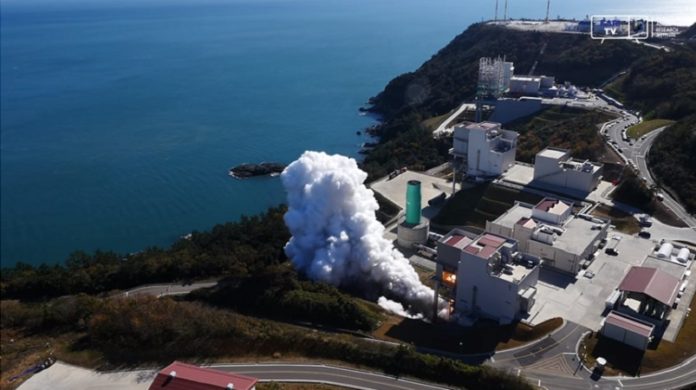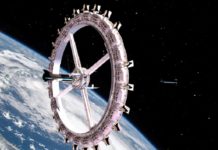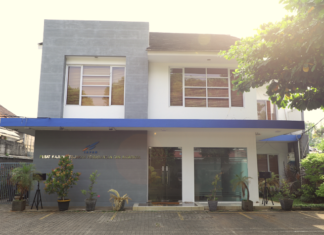The Korea Aerospace Research Institute (KARI), which is South Korea’s space agency, has announced that it is currently conducting final engine tests for its upcoming launch vehicle, the Korea Space Launch Vehicle II (KSLV-II).
The engine test, which will be of a 75-tonne liquid fuel engine using kerosene and Liquid Oxygen (LO), will be used in the first and second stages of the three-stage launch vehicle. For the first stage booster, four of such engines will be used, while the second stage will utilize one. The third and last stage, which will use a 7-tonne engine, has yet to be developed.
According to KARI, the design of the first and second stages have already been completed. If the engine tests are successful, the vehicle can be test flown this year in time for its October 2018 target.
This is not the first engine test KARI has conducted for the KSLV-II; the agency says it has conducted engine tests 20 times and changed the engine design 10 times so far, and has finally achieved combustion stability.
KSLV-II, which is targeted for launch in 2021, will be used to launch KARI’s lunar probe for the Korean Lunar Exploration Program. This is South Korea’s second launch vehicle, after KSLV-I, which launched a 100kg satellite to orbit in 2013. KSLV-II will be able to carry a 1,500 kg into Low Earth Orbit (LEO), and will be a completely indigenous vehicle.







